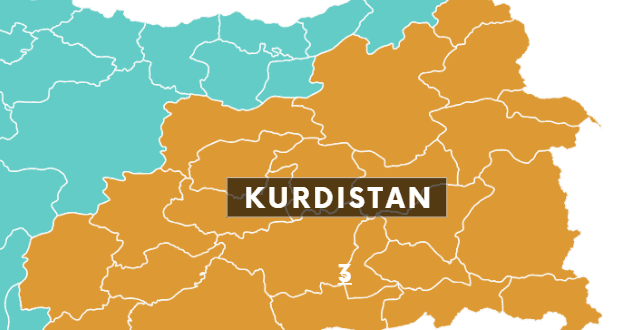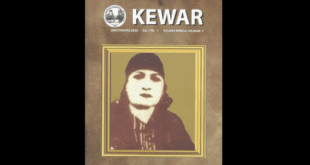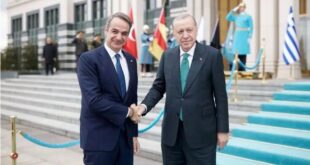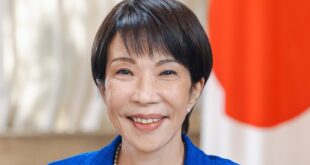Turkey holds local elections on 31 March amid uncertainty over the Kurdish dossier’s immediate future. If the main pro-Kurdish party, the People’s Equality and Democracy Party (DEM), wins the mayorships in the main cities of Northern Kurdistan, it remains to be seen whether the Turkish government will allow it to govern or, as has been the case for the past 8 years, will impose hand-picked trustees. In the background, the big question is whether there will be steps—and what kind—towards political negotiations between Turkey and the Kurdish movement.
The election campaign has coincided in time with the Kurdish national celebrations on Newroz. DEM leaders have demanded that, after the elections, they be allowed to govern where they win. They have also demanded that Kurdish cultural and linguistic rights be respected. In the 2014 and 2019 elections, the DEM’s left-wing Kurdish predecessor parties (BDP and HDP) won the majority of Kurdish-majority municipalities. But, since 2016, the Turkish government, under the pretext of counter-terrorism, has removed legitimate mayors’ offices and appointed unelected trustees to most of these municipalities.
In the unofficial capital of Northern Kurdistan, Amed (Diyarbakir in Turkish), DEM candidate Dogan Hatun called for an end to the trustees’ system, which he described as a “failure”, and said that, if allowed to govern, he would promote the Kurdish language and protect the city’s heritage. The AKP candidate chose not to guarantee that trustees would not be appointed again in the event of a DEM win. Nor Erdoğan ruled out such a scenario.
DEM co-leader Tulay Hatimoğullari said her party would try to reverse the institutional “hollowing out” trustees have carried out in Kurdish municipalities over the past 8 years. Among other measures, the trustees have sold off properties belonging to municipalities and closed down organizations and initiatives dedicated to Kurdish culture, language, and women’s rights. “They have tortured the cities,” said Hatimoğullari.
According to a survey, 82% of residents in several Kurdish municipalities oppose the trustees’ system.
Kurdish leaders call on AKP to find political solution
Several leaders of the left-wing Kurdish movement have in recent weeks called on the AKP to change its policy towards Kurdistan. Historic Kurdish leader Leyla Zana said in an interview that Erdoğan should “unfreeze” the peace process deployed in 2013-2015, although she admitted that no effort is seen in this direction.
Another veteran Kurdish politician, Ahmet Türk, assured that Erdoğan could “convince the [Turkish] deep state” to reach a peace agreement. He has also acknowledged, however, that he has no indication that this will happen. In fact, he said that the president “is the one who persecutes the Kurds the most today.”
From prison, former Amed mayor Gültan Kışanak believes that the chances of opening up the peace process again are “slim.” Also from prison, former HDP leader Selahattin Demirtaş has called on Erdoğan to revive the peace process, and reminded him that the interlocutor should be the imprisoned PKK leader Abdullah Öcalan, whose ability to communicate with the outside world has been cut off for 3 years now.
Whether there are more or less options, it is clear that, for the left-wing Kurdish movement, an eventual negotiation with the AKP could become a minefield. In previous constitutional reforms, Erdoğan has sought to strengthen presidential power and curtail judicial independence. Now he advocates, among other things, the introduction of amendments along the lines of social conservatism and the embodiment of the “Century of Turkey,” a Turkish nationalist vision of the country’s future.
The Kurdish movement sits opposite the AKP on these issues. Moreover, it is hard to imagine that talks between the two sides can achieve anything substantial as long as Turkish military aggression continues in northern Syria, where the Kurdish movement is working to consolidate the AANES self-rule system.
The (possible) impact of Istanbul
The narratives that can be found these days in the Turkish media and international think tanks on the immediate future of the Kurdish question are disparate.
On the one hand, some reflect on the fact that Erdoğan no longer has—especially since taking control of many state levers after the failed coup of 2016—enough incentives to seek an agreement with the Kurds and that the Turkish leader will continue, come what may, through the path of authoritarianism and political and military confrontation.
On the other, an alternative line of thought is that an AKP victory in Istanbul this time—in 2019 they lost—would leave Erdoğan and his party with no real contenders at the state level, which could allow the Turkish president to focus on delivering a more “constructive” legacy for the future, including a not-so-ambitious agreement with the Kurdish movement. Indeed, during the campaign, some voices accused the DEM of rejecting a renewed alliance in Istanbul—a city home to more than 3 million Kurds—with the CHP, the main opposition party to the AKP, precisely because the pro-Kurdish party would favour this latter scenario. The DEM denied this.
Finally, a review of the main Kurdish media reports in Turkey does not suggest much optimism about the possibilities of a negotiated way forward after the election. The Kurdish media rather seem to point to the need for the DEM to concentrate on being allowed to govern in the municipalities where it wins, and to try to counteract the advance of authoritarianism.
————————————-
This news was originally published by Nationalia.
Photo: The interactive map of Infowelat prepared to show DEM Party’s candidates for Kurdish municipalities.
 Infowelat Enformasyon Ji Bo Welat
Infowelat Enformasyon Ji Bo Welat




